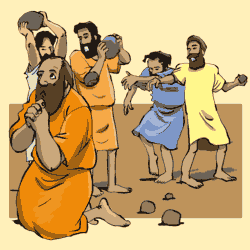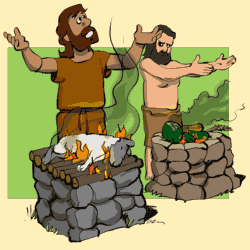 One of the problems of contemporary Christianity is that people who claim to be Christians tend to talk and act just like everyone else, so that it is hard to spot the difference between a Christian and a non-Christian. In the early days of the church, the followers of Jesus really stood out because of the shining example they set to others, serving the poor, caring for the prisoners, and standing up against evil. The first chapter of the letter of James says:
One of the problems of contemporary Christianity is that people who claim to be Christians tend to talk and act just like everyone else, so that it is hard to spot the difference between a Christian and a non-Christian. In the early days of the church, the followers of Jesus really stood out because of the shining example they set to others, serving the poor, caring for the prisoners, and standing up against evil. The first chapter of the letter of James says:
Become obeyers of the message, and not just hearers who delude themselves. Someone who hears the message but does not obey it is like a man who looks at the face he was born with in a mirror — he sees himself, but as soon as he goes away he forgets what he looks like. But someone who looks into the perfect law of freedom, and perseveres — someone who does the work and does not just hear and forget — will be blessed in that work.
Somehow Christianity has become so institutionalised and ritualised that its power has been blunted. People go to church on Sundays to hear the message, but the rest of the week they fail to obey the message. As James says, we are deluding ourselves, looking in the mirror on Sunday mornings to see what we are supposed to look like, but immediately afterwards forgetting and failing to be faithful.








